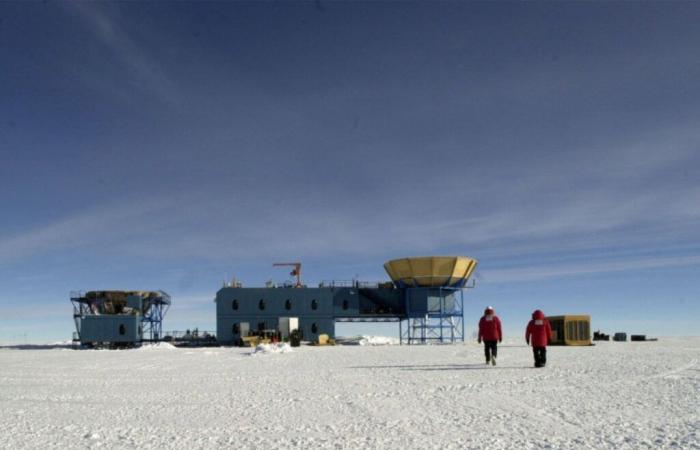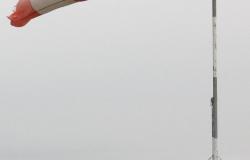Keystone-SDA
Chilean President Gabriel Boric began a trip to the South Pole on Friday, a rare event for a head of state that could make him the first leader of the American continent to reach the southernmost point on the planet.
This content was published on
January 3, 2025 – 5:57 p.m.
(Keystone-ATS) Accompanied by two ministers and the three commanders of the armed forces, Gabriel Boric should arrive at the American base Amundsen-Scott, located at the South Pole, at 4:30 p.m. local time (8:30 p.m. in Switzerland), according to a press release from the Chilean presidency.
The delegation is to travel from the Chilean Glaciar Union base, located on the Antarctic continent, aboard two helicopters and two planes of the Chilean Air Force.
President Boric will spend approximately two hours at the Amundsen-Scott base, in one of the most remote and hostile regions on the planet.
He flew early Friday from Punta Arenas, southern Chile, to the Glaciar Union base aboard a Hercules C-130 plane.
Mr. Boric is the first leader from the American continent to visit the South Pole and the third worldwide, according to the presidential press release, which recalls that in 2007, the New Zealand Prime Minister at the time, Helen Clark , went there, followed in 2011 by the Norwegian Prime Minister, Jens Stoltenberg.
Scientific activities
The latter commemorated the centenary of the first expedition to reach the South Pole, led by Norwegian explorer Roald Amundsen, on December 14, 1911.
This trip “comes at an important time for Chile’s scientific activities in the region,” indicates the press release from the Chilean presidency.
Historically, Chile has concentrated its activities in the northern sector of the Antarctic Peninsula. But it is now seeking to extend them “to the sectors of the Bellingshausen Sea and the Weddell Sea”, which surround the peninsula, the document specifies.
During the 20th century, countries such as Chile but also France, the United States, the United Kingdom, Argentina and Japan set up bases in Antarctica, as part of scientific expeditions while asserting their presence in the region.
Since 1961, activities in the region have been governed by the Antarctic Treaty, which aims to preserve the continent from international rivalries.






